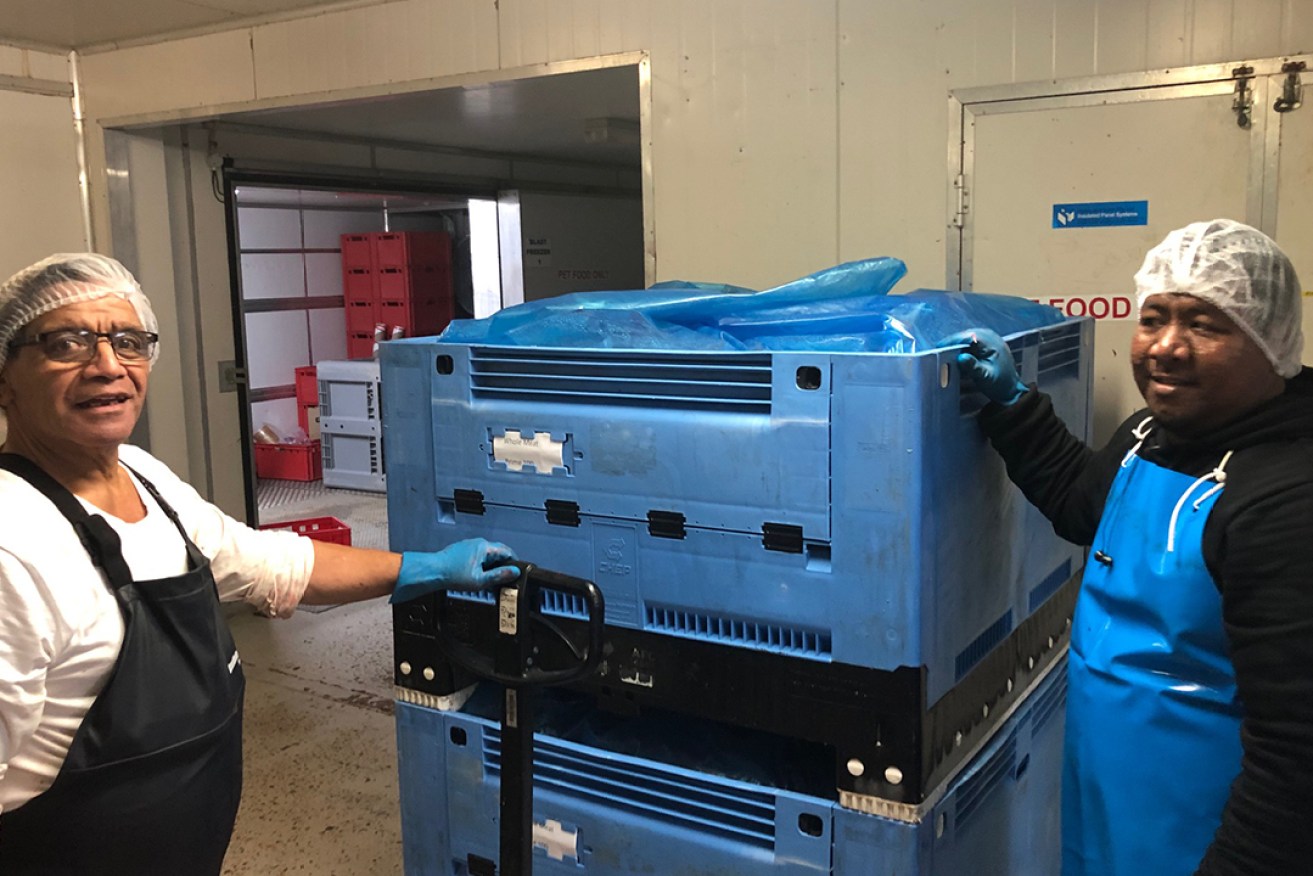Game-changer that’s building a jobs lifeline in our regions
Pet food supplies will continue in the face of coronavirus disruptions – at least from one western Queensland producer who is confident of further expansion despite the pandemic’s impact on the economy.


Workers at Western Game Processing in Longreach like Richard Power and Joseph Rangi are benefiting from the company's expansion plans.
Ben Cameron, the managing director of Western Game Processing in Longreach, said he expected to process an additional 20-30 tonnes of product this year, requiring a further eight employees to meet growing demand.
Established two years ago, the company is a key supplier of pet food mince, sourced mainly from the district’s wild kangaroo and pig populations that are flourishing after recent rains through the state’s interior.
While most of the raw product from the company’s Longreach plant will be destined for the food bowls of pet dogs and cats, a large portion is also supplied to crocodile farmers in the Northern Territory who supply the fresh meat and leather goods market.
About 20 tonnes of frozen product is also exported to the US every month, which Cameron forecasts will continue to grow, especially with the Australian dollar remaining low.
Western Game Processing will be able to accelerate its expansion thanks to a Queensland Government grant it received last week.
In a week when job losses in the tens of thousands have been felt across the country due to the coronavirus pandemic, regional Queensland has been told it can expect more than 600 jobs to be created from a program funding businesses to launch new projects.
Agricultural Industry Development and Fisheries Minister Mark Furner said 14 regional businesses were successful under the second round of the Regional Economic Development grants program, with some enterprises receiving as much as $250,000 each.
The businesses are spread across the State and commodities, with industries such as horticulture, aquaculture and meat processing sharing in the cash.
“Some businesses will expand on infrastructure, increase sustainability and energy efficiency, or develop agtech opportunities, while others will value add second-grade food product, expand into organics, or develop new systems of farming in their industries,” Furner said.
“All the projects will create new jobs for regional Queensland. In total 169 direct full-time jobs will be created, another 183 during construction and 299 indirect full-time positions will need to be filled to make these projects come to life.”
The $10 million grants program provides for three funding rounds over a three-year period ending in 2021. Funding for round 3 of the grants will be announced later this year.
The proposed jobs boost comes as agriculture industries face the prospect of a farm worker shortage due to global travel bans that threaten to decimate the supply of foreign casual labour available for harvest work.
Federal Agriculture Minister David Littleproud told ABC Radio a decision on changes to visa arrangements for overseas workers employed in agricultural enterprises was “imminent”.
When asked if Australians jobless due to the coronavirus slump could fill the overseas worker shortfall Littleproud replied:
“Will a worker in the hospitality industry want to go and pick oranges in Gayndah in Queensland, or go to the Northern Territory when they have family and they have commitments in metropolitan Australia for a six to eight-week period?
“We have to be pragmatic about the practical reality of people and how they’ll act in this. Farmers need to get their produce off the paddock when it’s ripe and they can’t wait. So, I can’t sit there and hope that people from Melbourne might travel up to Gayndah and pick fruit for a little while.”
As panicked shoppers continue to strip supermarket shelves, attention has put the spotlight on Australian food security, prompting the National Farmers Federation to push the sector’s credentials as a reliable, safe producer of quality food capable of feeding at least three times the current Australian population of 25 million.
With animal proteins a primary target of shoppers, particularly beef mince and chicken, meat industry heads moved to calm fears that processing and supply could be disrupted if Covid19 infections were confirmed among abattoir workers.
Australian Meat Industry Council chief executive Patrick Hutchinson said abattoirs were, by their nature, highly sanitised facilities already well protected from biohazards and well equipped to manage any infections efficiently without the need to take processing fully off-line.
Amid heightened interest in Australia’s food-producing capability, Cameron said he was looking forward to pushing ahead with expansion plans despite the coronavirus slowdown weighing hard on the economy.
“The crocodiles in the NT still need to be fed and I would imagine that food for people’s pets will be classified as an essential service,” he said.
Cameron said the grant would contribute to the plant increasing energy efficiency via renewable technology while enabling production of bone-free kangaroo meat and value-add export products.
He estimates they will need 24 full-time and part-time employees within 12 months from a current workforce of 16, plus another three during construction. The project is expected to support 40 indirect full-time jobs.
“It’s great for the town because we source locally and employ locals,” he said.








